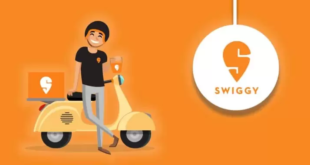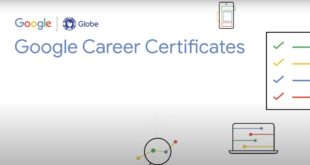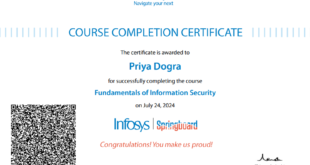Technical Search Engine Optimization Certification – Technical SEO MCQ (Muliple Choice Questions) | The Digital ADDA
Technical Search Engine Optimization refers to the practice of optimizing web pages to improve a website’s search engine rankings and earn organic traffic. In addition to publishing relevant, high-quality content, on-page SEO includes optimizing your headlines, HTML tags (title, meta, and header), and images. The quiz below will help shed some light on that. Do give it a shot and see what new facts you may learn about this emerging concept in business.
Technical Search Engine Optimization Certification
NSE INFORMATION SECURITY EXAM ANSWERS
Question 1: What’s the ideal length for content on a web page?
- 1,000 words or more.
- It doesn’t matter.
- 100 words on e-commerce pages, 500 words or more on article pages.
- Whatever is most appropriate to the topic and focus of the web page.
Question 2: Suppose you want to make sure to cover the three key areas of SEO; Which of the following would you put into place?
- Improving source code, social media, and analyzing meta data
- Branding , keywords and title tags
- On page optimization, technical optimization and off page optimization
NSE INFORMATION SECURITY EXAM ANSWERS
Question 3: What is duplicate content?
- When one page has the exact same content as another.
- When you copy content from a competitor’s site.
- When there are substantive blocks of content on a web page that either completely match, or are appreciably similar to, content on another web page.
- When one page has nearly the same content as another.
Question 4: What is the highest google page rank a web page can have?
- 10
- 1000
- 100
2 Government Internships | Free Certificate | Niti Manthan & My Gov Internship – Work From Home
Question 5: Domin authority is a metric maintained by?
- Moz
- Bing
Question 6: Which of the following search engines patented the concept of “Trustrank” as a methodology for ranking web sites & pages?
- Yahoo
- MSN/Bing
- Teoma (prior To Acquisition By Ask)
Question 7: What is the full form of SEO?
- Search Engine Optimum
- Search Engine Optimization
- Search Electronic Optimization
- None of the above
Question 8: Which on page element carries the most weight for SEO?
- The title tag
- The meta keywords tag
- Headings
- None of above
FREE TATA Career Skills Course by NCS Ministry of India | Government Free Courses with Certificates
Question 9: S Page is used for?
- Attract visitors from the search engines straight onto the Hallway Page
- Organizes the Doorway Pages
- Helps people navigate to different Doorway Pages
- Enables search engine bots to index the Doorway Pages
Question 10: Which of the following website design guidelines have been recommended by Google?
- Having a clear hierarchy and text links
- Every page should be reachable from at least one static text link
- If the site map is larger than 100 or so links, you should break the site map into separate pages
- Keeping the links on a given page to a reasonable number (fewer than 100)
- Use less than 30 images or graphics per page
Question 11: What is anchor text?
- It is the main body of text on a particular web page
- The text within the left or top panel of a web page
- It is the visible text that is hyperlinked to another page
- It is the most prominent text on the page that the search engines use to assign a title to the page
Google Cloud Platform Quiz Questions and Answers | Free Certificate
Question 12: Which query will give the list of web pages indexed by a particular search engine on given domain?
- list:http://www.websitename.com
- link:http://www.websitename.com
- webpage:http://www.websitename.com
- site:http://www.websitename.com
Question 13: Which of these is not a metric used in link building?
- Domain authority
- Number of link
- Number of advertisements
Question 14: What does anchor text mean?
- The largest text on a page
- The visible text which is hyperlinked to another page
- The most important keyword for a page
- The visible bolded text
NSE INFORMATION SECURITY EXAM ANSWERS
Question 15: What is the advantage of putting all of your important keywords in the Meta Keywords tag?
- No specific advantage for search engines
- They will be bolded in searches for that term
- It increases relevance to Yahoo! and MSN/Live, although Google & Ask ignore it
- None of the above
Question 16: What does SERP mean?
- Stop eating rice pudding
- search engine results page
- search engine resource page
- search engine resource program
Question 17: Google webmaster tools can help you with
- determining missing or duplicate meta description or title tag
- providing keyword ideas
- monitoring competitors
- None of the above
Question 18: If you were to use keywords in the same color as the background of your website, thus hiding them, what kind of SEO technique would you be practicing?
- Leverage branding
- White hat SEO
- Black hat SEO
- None of the above
NSE INFORMATION SECURITY EXAM ANSWERS
Question 19: When planning a link building strategy, which of the following cannot be thought of as assets?
- data
- money
- contents
- None of the above
Question 20: What term best denotes the content of a website that spiders can understand and index easily?
- readable content
- quality content
- indexable content
- None of the above
Question 21: Which of the following is not a necessarily a black hat tactic?
- link exchanges
- buying links
- hidden text
Question 22: Which statement from the below options are true when it comes to RSS?
- It is an XML form
- This is Realtime streamlined syndication
- Displaying static information
- It is a Linux technology
Question 23: What does the term “fat head” refer to?
- A really mean marketer
- Search phrases over two words in length
- Search phrases equal to or under two words in length
- None of the Above
Cisco Free Internships | AICTE & NASSCOM Certificate | Work From Home Internships by Government
Question 24: Local SEO is about your ___________being found on maps and mobile searches.
- Website
- Phone Number
- Location
- Password
Question 25: What are hreflang tags?
- They are used to tell search engines what language and country a website is intended to serve.
- They are used to tell search engines what language and/or country a website is intended to serve.
- They are used to tell search engines what language, or what language and country a website is intended to serve.
- They are used to indicate the preferred dialect of a language for a web page.
Question 26: What does the Vary: User-Agent HTTP Header do?
- It tells web servers that users more about what a user needs.
- It tells users that tells a site’s content varies from time to time.
- It tells ISPs to not cache a site’s content.
- It tells caching servers that a site’s content varies by user agent.
Question 27: What is responsive web design?
- A site design that adapts to the specific needs of the user.
- A site design that uses CSS to dynamically adapt the HTML to fit the user’s device and screen size.
- A site design that determines the user agent of the browser and sends different HTML sized for optimal viewing.
- A site that provides different HTML to Google from the HTML it delivers to users.
Question 28: Which of the following search engines offers a popular list of the top 50 most searched keywords?
- Bing
- Yahoo
- Lycos
Kanban Essential Professional Certification by Certiprof
Question 29: Which of the following is the process of fetching all the web pages linked to a website?
- Indexing
- Crawling
- Processing
Question 30: Which of the following statements is not true about search engines?
- They are arguably the Internet’s “killer app.”
- They are monetized almost exclusively by search engine marketing.
- They have solved the problem of how users instantly find information on the Internet.
- There are hundreds of search engines vying for user attention, with no clear leader having yet emerged.
NSE INFORMATION SECURITY EXAM ANSWERS
Question 31: The crawlers search engines use to find web pages are also known as…
- Ants
- Caterpillars
- Spiders
- Worms
Question 32: Whats is the main purpose of a Meta Description?
- To encourage clicks from Search Engine Results Pages
- Improve ranking for pages
- Create Rich Social Media Posts
Question 33: A backlink is..
- A link from a page in your site to another page in your site
- A link from another website to your website
- When some clicks the browser back button
Question 34: Why do you need to focus on local AND organic SEO?
- To own more real estate online
- Google decides who shows up differently for each
- IIt’s important to show for categories and keywords
- All of the above
Question 35: What are we optimizing when with organic SEO efforts?
- the look of a website
- categories
- website speed
- keywords
Question 36: Which of the following can be termed as appropriate Keyword Density (amount of keywords to be used in a page)
- 0.01-0.1%
- 3-4%
- More than 10%
- Below 40%
NSE INFORMATION SECURITY EXAM ANSWERS
Question 37: What does the term “Sandbox” mean in SEO?
- The first 10 search results for a particular keyword.
- The box with paid ads that appear when you perform a search.
- A special category of sites that are listed in kid-safe searches
- This is where sites are kept till they get mature enough to be included in the top rankings for a particular keyword
Question 38: What is the generally approved distinction in between SEO and also SEM?
- SEO refers to organic/natural listings while sem covers pay per click, or paid search.
- Search engine optimization focuses on organic/natural search positions, sem encompasses all facets of search marketing.
- No difference, they’re synonymous.
- SEO has a tendency to be a west shore term, sem is much more eastern shore.
Question 39: Which of the following link building techniques do online search engine tacitly recommend?
- Reciprocal link exchange programs.
- Viral content creation & promotion.
- Renting out pages from trustworthy domains and also positioning web links on them.
- Purchasing web links from web link brokers & networks.
Question 40: Which of the following declarations about RSS are proper?
- It is a form of XML.
- It stands for Realtime streamlined syndication.
- It is an excellent way of presenting static information.
- It is a microsoft technology.
NSE INFORMATION SECURITY EXAM ANSWERS
Question 41: What will the following robots.txt file do?
- It will allow Google to crawl any one of the dynamically generated pages. It will certainly additionally allow thealtavista scooter crawler to access every page.
- It will certainly disallow Google from crawling any one of the dynamically generated web pages. It will certainly likewise disallow the altavista scooter crawler from accessing any page.
- It will certainly disallow Google from crawling any of the dynamically generated web pages. It will certainly allow the altavista scooter robot to access every page.
- None of the above.
Question 42: Which of the following can be termed as a great keyword selection and placement methods?
- Targeting basic synonyms of the main keyword.
- Targeting the highest possible looked keywords only.
- Copying rival keywords.
- Optimizing 5 or more keywords per web page.
Question 43: Just how can Meta Description tags help with the technique of seo?
- Trick concern– meta description are NOT vital.
- They aid to inform the engines which keywords are essential on your page.
- They serve as the duplicate that will certainly attract searchers to click on your listing.
- They are crucial ranking factor in the search formulas.
Question 44: Google can index the information inside of an iFrame
- False, Google does not recognize the information inside of iFrames.
- True, content within an iFrame is visible on your site therefore Google can index it.
Question 45: What is Keyword Stuffing?
- Loading a webpage or meta tags with keywords.
- A coding tool designed to help people with disabilities find your page faster
- Loading your web page with content from other sites
Digital India Internship for NIC Summer Batch 2022 – Government Internship | MEITY Free Certificate
Question 46: Which of the following factors influence ranking?
- All of these
- Incoming and outgoing links
- Keywords in domain name
- Website loading speed
Question 47: When should you decide to work with a developer to implement structured data on a page?
- When there are multiple schema markups that you want to implement on a single page
- When you are unable to use a plugin to add structured data to your website
- You should always work with a developer to implement structured data.
- When there are a large number of required or recommended properties in a markup
Question 48: What are rich results?
- Google’s response to a user’s search query
- Visually enhanced search results that provide supplemental information to the title, URL, and meta description of a web page
- A standardized format for providing information about a page and classifying the page content
- A markup language
Question 49: When building a relationship with the goal of receiving backlinks, what is the first thing you should do?
- Request a link from them
- Deliver value to them
- Pitch an idea for a piece they can write
- Tell them how important you are
Question 50: Should responsive design be favored over websites with separate versions for mobiles and computers?
- It does not make a difference
- No. Separate versions are better
- Google prefers websites with responsive design
- None of the above
 Priya Dogra – Certification | Jobs | Internships
Priya Dogra – Certification | Jobs | Internships



